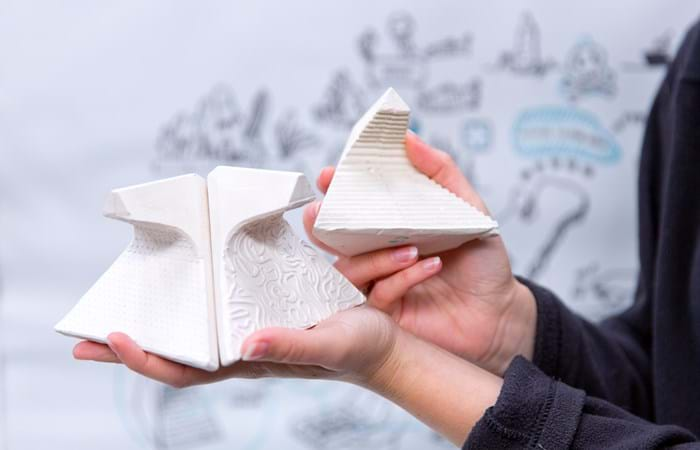As a member of the BOOST (Better Oyster Outplacing & Seeding Techniques) consortium, Boskalis is participating in the development of a new method to establish large-scale oyster reefs as nature enhancements for offshore projects.
The BOOST concept was designed and pioneered by BlueLinked, a leader in circular marine aquaculture, and fits with the environmental goal of several countries – including the Netherlands – to restore strategically important oyster populations in the North Sea. The concept can be applied in marine construction and renewable energy projects on behalf of clients who increasingly require added ecological value.
The consortium, which has been granted significant funds from the Dutch Government, includes The Rich North Sea, BlueLinked, Advanced Tower Systems, Wageningen University & Research and Lobster Robotics. Through constructive collaboration these organizations are enabling the successful development, deployment and monitoring of the technology.
The concept consists of two innovations: BlueLinked’s onshore TinyOcean circular aquaculture system which is capable of covering biodegradable reef-tiles with thousands of baby oysters, and the subsequent large-scale deployments of these reef-tiles which – through hydro-morphological processes – cluster together to form growth centers for oyster reefs on the sea floor. Once a growth center is formed, the oyster reef expands naturally as oysters grow on top of other oysters while the underlying reeftiles slowly biodegrade and disappear.
Through its dedicated Artificial Reefs Program (ARP), Boskalis is a leader in the field of nature-inclusive design and this innovation fits neatly within our sustainable innovation portfolio and strategy. BOOST represents an extension of the ARP in the context of North Sea-based projects where we see a rapidly developing need, and thus market, for cost-effective nature enhancement on a large scale. The concept is also applicable globally, including in the US and Taiwan offshore markets where Boskalis is active.
Sustainability Impact on Projects
BOOST embodies the lowest emission and highest ‘power of nature’ wielding technology to successfully develop oyster reefs on a large scale. It is intrinsically sustainable from the perspective of:
Emissions: BOOST technology consists of small reeftiles which are easily deployed in large numbers using small vessels and craft. No heavy marine installation vessels or cranes are required.
Operations: The absence of heavy reef units and crane operations maximizes installation safety, efficiency (lower costs) and workability in North Sea conditions.
Powered by nature: While the reef tiles biodegrade over time, their clustering by nature’s forces allows the formation of growth centers, kickstarting the formation of oyster reefs which in turn kickstarts a positive feedback loop for biodiversity and subsequent oyster growth & proliferation.
Traceability: The deployment of innovative autonomous underwater vehicles (AUV’s) enables the flexible, safe and detailed monitoring of reeftile clustering and growth.
